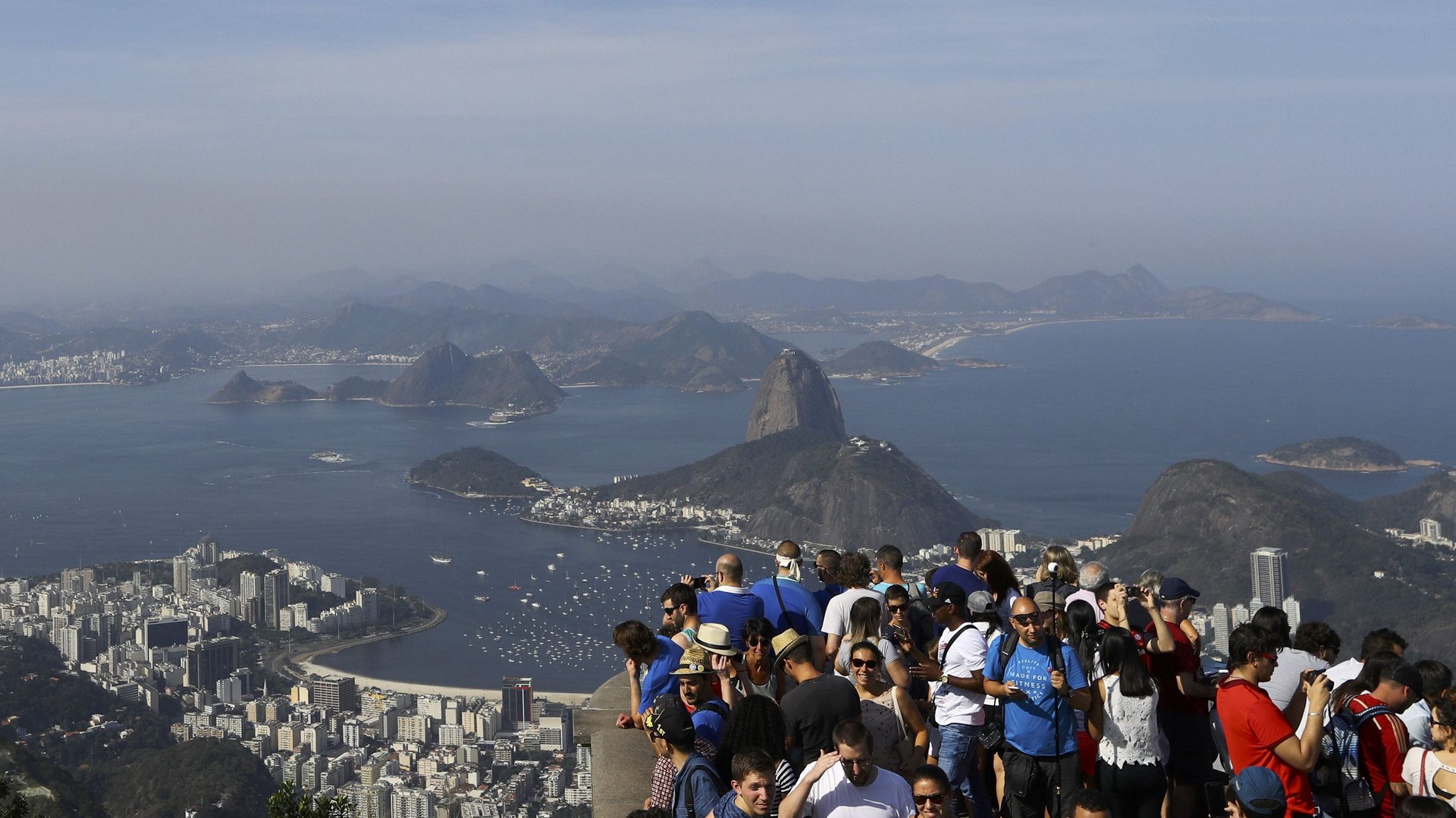You can now get around Rio with three-word phrases instead of addresses
The Olympics have sparked a surge in public transport options in Rio de Janeiro, ranging from new bus lines to subway stations. The city’s mayor says Rio’s “mobility” has increased six-fold in as many years. Add to all that the estimated 400,000 to 500,000 international visitors arriving in the city for the games, and getting from A to B is sure to be a crowded and confusing experience for many.


The Olympics have sparked a surge in public transport options in Rio de Janeiro, ranging from new bus lines to subway stations. The city’s mayor says Rio’s “mobility” has increased six-fold in as many years. Add to all that the estimated 400,000 to 500,000 international visitors arriving in the city for the games, and getting from A to B is sure to be a crowded and confusing experience for many.
To simplify their navigation, visitors and locals alike can now turn to three-word phrases instead of complicated addresses. The three-word system, from the British startup What3Words, is integrated into the RioGo app, a trip planner for the Olympics that has won the city government’s endorsement.
Users of the app select the events they’re attending (it comes pre-loaded with the Olympics schedule), and RioGo generates an itinerary, along with each address and its corresponding three-word phrase. (The Christ the Redeemer statue, for example, is at the What3Words location “occupy.ranked.powerful.”) Each three-word phrase refers to a specific nine-square-meter plot of land, useful for pinpointing the exits, entrances, and meeting points of vast sports complexes.
Using three-word phrases to get around isn’t as strange as it sounds. In remote places and crowded cities around the world, navigation is often based on cruder, landmark-based directions instead of formal addresses. To help pinpoint delivery locations, Mongolia’s national postal service has adopted the three-word system. It’s also being integrated into delivery systems used by Aramex, a major logistics firm headquartered in Dubai that mainly serves Africa and the Middle East. The firm is asking its e-commerce customers to use three-word phrases because they’re more accurate than the “landmark based systems,” its chief operating officer said. Aramex, Intel Capital, and others also took a stake in What3Words worth $8.5 million in June.
Mapping Rio has also occupied Google ahead of the Olympics. The tech giant has mapped 26 favelas, including capturing street views of the narrow thoroughfares by sending people through the settlements on foot, outfitted with high-tech recording backpacks. Residents of Rocinha, Rio’s largest favela, get their mail delivered by a company called Grupo Carteiro Amigo, which deals with the lack of official street addresses there using—you guessed it—three-word phrases.